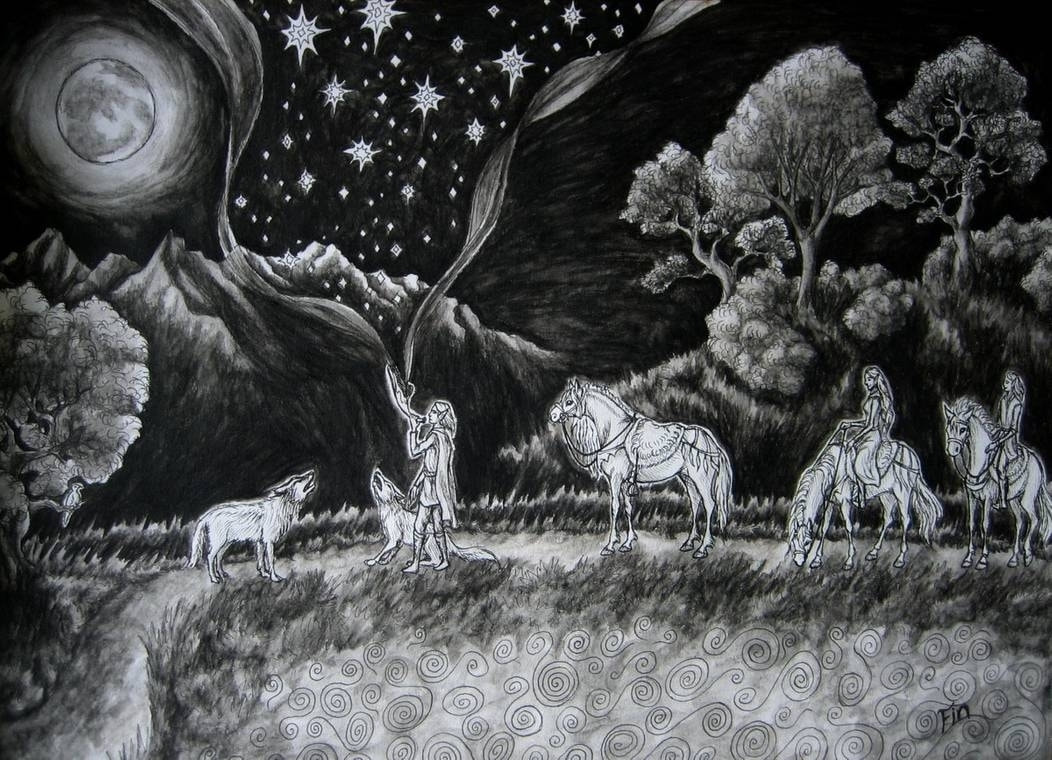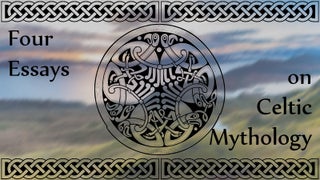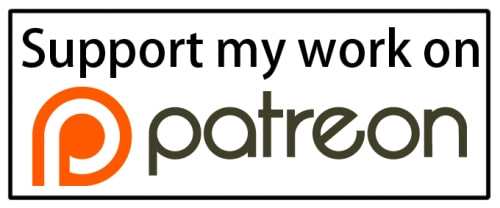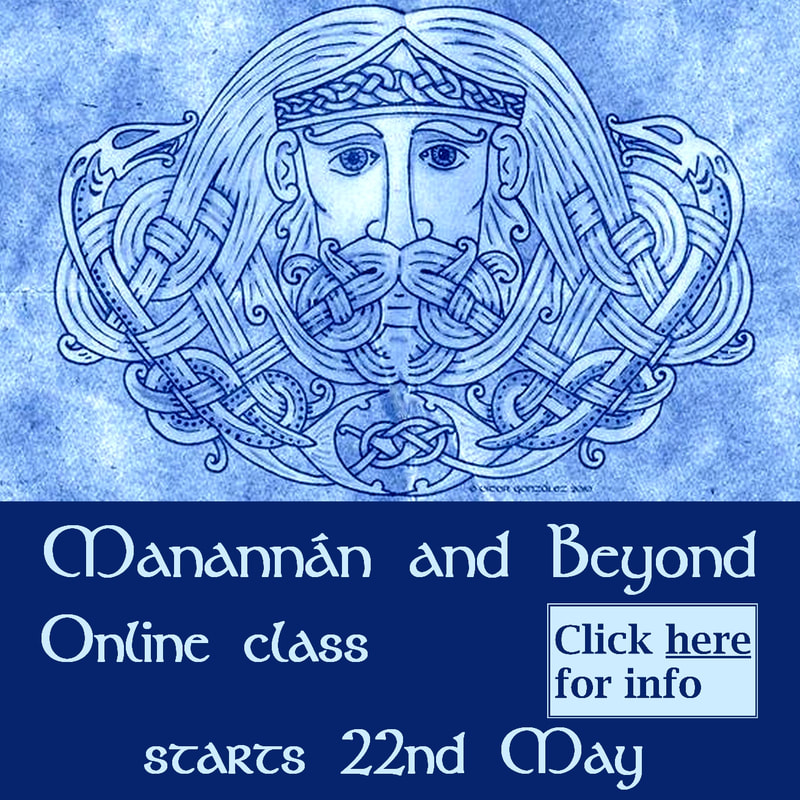I’ve been living deep in mythology for the past couple of years. I believe the Mabinogi, in particular, holds an important message for us that I hope to share before too long. I feel like this way of looking at myth is a little out of step with what the majority of other Pagan writers have to say.
The psychological approach of Carl Jung and Joseph Campbell has primed us to read myth with an eye to self-analysis and personal development. Any story, old or new, can offer us inspiration and self-insight. Even characters in novels and films can influence and motivate us. That’s fine, and characters in myth, whether they are deities or mortals can do the same. But if that’s all we can gain from them, then we don’t really need myths at all, and I think that we do.
I’ve said before that I consider myth to be a deep distillation of human experience, and of our relationship with the gods. As such, it will always be open to individual interpretations. However, that isn’t the same thing as simply mining it for personal meaning or messages, valid as those may be.
We need to remember that we live in groups, in a society. We need to remember that all things are connected. It’s not all about me, and my suffering, and my dreams. It’s not all about my tribe’s happiness and survival. It’s not all about the human race, and its cultural productions and social ills. We need to consider what messages myth has for the greater us, and those of us who study myth need to be fearless in talking openly about what we think those messages are.
I sometimes hear people talking about the meaning they find in the story of Rhiannon, in the the Mabinogi. Often, in this type of discussion of deities and myths, they are finding identification with Rhiannon, and some useful motivation that helps them in their daily life.
Of course I am pleased for them, because life is hard and if you can find something that helps you get through it, you are blessed. But in this case, I wonder whether they are necessarily blessed by the goddess Rhiannon, so much as by their own understanding of the story at a rather superficial level. (I’m basing that on how they talk about the story, not on my own assumptions.) It’s not up to me to judge someone else’s experience, but examining their interpretation is still worth doing. Especially if they are leading workshops, or publishing their thoughts.
The vast majority of the stuff which happens to female characters/deities in the Mabinogi (and to a bit lesser extent in Irish myth, too) isn’t good. In fact, I’d go so far as to say that women in 21st century developed countries are generally getting a better deal than the heroines/goddesses in these stories. If I felt I needed a figure to emulate, someone to inspire me to be a better person, I could find better models in both fiction and real life. Which brings us back to the question I asked at the start. What is mythology for?
| If I’m right, and mythology is a distillation of human experience and our relationship with the gods, and if it is something which arises from a whole culture or society, then I think it stands to reason that the messages may also be more broad than personal. Mythology is perhaps a way to hold a mirror up to our society and culture. These stories have a lot to teach us about what we value, about what makes a good leader, about what success and failure look like, and about what kind of actions are likely to bring destruction on the kingdom. This still leaves us with more loose ends than I can tie up. For one thing, if the myths do contain messages for us as a society, who gets to decide what those messages are? I find that this quickly brings us back to the question of identification. If you are concerned about feminist issues, you will likely find a feminist narrative in myth. If ecology is your thing, you’ll be able to see that interpretation everywhere in mythology. If you believe that a society will benefit from more warriors or magicians, you can probably find material in the myths to back that up. |
My best guess is that the deities came first, with certain attributes and associations, and that the myths grew up later, probably developed organically over time by the wise and the powerful, as a method of communicating certain ideas. What better way to get people to listen than to cast the gods in the starring roles of the stories? Does it make sense to first identify with a character in a story who possibly acts very badly, or at the other end of the spectrum, is pretty much a victim, and then to offer devotion to that deity as they are in their myth?
You’ll notice that this essay is riddled with unanswered questions. That’s partly because I’m thinking out loud, and also because I feel we need to question the 20th century, psychological, approach to the gods and their myths. Myths can help us to diagnose current problems, help us illustrate them to others, and help us find solutions. I also believe that reading the myths is one path to knowing the gods.
Both of these endeavours require the reading of myths at a deep level. Reading or hearing them repeatedly, not just once. Reading good translations before we go for the fanciful or romantic re-tellings. Comparing different versions of the same myth, or looking at all the stories about a specific deity. Reading them with the attention and respect due their antiquity. If you are not going to do that, then please listen to the voices of those who do, because they have worked on your behalf. And if you are delving deeply into the myths, please share what you are learning, because people need to hear it.



 RSS Feed
RSS Feed




